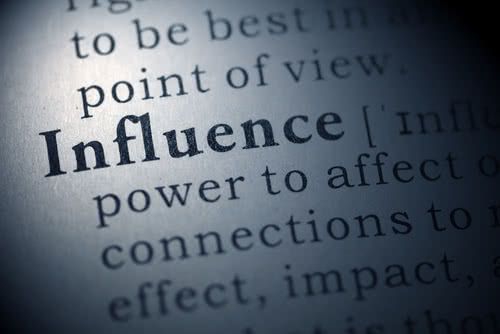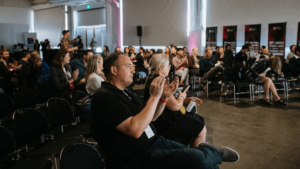How do you persuade people to buy tickets for your events?
That should be the question at the top of every event marketers mind.
Yet people are complex, difficult to understand, they have competing priorities and everyone is different, so how can you figure out an efficient marketing approach that influences people to buy your tickets?
Well, one pioneering book – unsurprisingly a bestseller and classic amongst sales and marketing leaders – shows us how.
Robert Cialdini’s book ‘Influence: The Psychology of Persuasion’ offers everyone a roadmap for how basic human psychology can be used to influence our behaviour.
Here is the condensed version on how event marketers can use its principals to sell more tickets to your events.
Reciprocity
The theory goes that in order to survive, and thrive, humans have had to develop a system of reciprocity, whereby if someone helps you, then you in turn will feel the need to help them, or give them something back. This creates the basic social building blocks that allow us to function as a society.
How can this help your marketing? Why not offer your potential attendees something up front, before they’ve purchased a ticket? This could be a great blog, an eBook, or some other useful tools or resources.
What you give them doesn’t have to be expensive; it just has to be valuable to them. In return, they’ll be more likely to choose your event over others that haven’t given them anything.
Commitment
Another deep-seated psychological trait we display is our need to be consistent in our lives, and particularly in front of others when our behaviour is public. This feeds into things like trust and truthfulness, i.e. if you say you’ll do something on Monday, will you follow through on Tuesday or change your mind?
How can this help your marketing? Getting some form of commitment, however small, can start building a positive momentum that will lead to their eventually buying a ticket.
For example, if you could get them to respond to an online questionnaire that asks ‘Does this event sound like something you’d attend?’ and they say ‘yes’ then they’re making a very small but significant commitment that they like the sound of your event.
You can then follow up with communications that ask for incrementally more commitment (e.g. their email address for event announcements, add the dates to their diary, put down a deposit…) and at each stage they’re much more likely to buy a ticket because psychologically they’re committed.
Social Proof
Sometimes we simply don’t have the time or resources to weigh up every decision we have to make during the day, and so we look for shortcuts to indicate what a good decision might be.
One of these shortcuts is to use other people as judges of what is worth buying or doing, because we assume they’re behaving in their own rational best interests. Therefore popular products, services and the like become more popular, and those with little social interest struggle to find buyers.
How can this help your marketing? Our social commerce report shows the power of social proof in action for events, with every share of an Eventbrite event through social media driving an average of 16 visits back to the original event page, and generating approximately £2.41 in incremental revenue for the event organiser.
So make sure you are optimising all your events for social sharing to benefit from the power of social proof!
Pro tip: Adding social integrations to your event page is also super simple with Eventbrite, and there are some handy how-to guides on publishing your event to Facebook and promoting your event with Twitter
Liking
The idea of liking is more than just buying from people we think are nice. One of the main underpinnings of ‘liking’ is that we trust – and buy – from people we identify as being similar to us.
It also helps if that person (or company) is also nice, trustworthy, pays us complements etc. but the most important thing is we identify with them.
This principle has recently been expanded a lot by Simon Sinek in his book ‘Start With Why: How Great Leaders Inspire Everyone To Take Action’ and his TED talk based on the same theme.
How can this help your marketing? You can’t sell to everyone, and by trying to appeal to everyone, you may well lose sales. Therefore you should underpin all your event marketing efforts by creating and then focusing on the buyer personas that most closely match your event and the values of your company.
Authority
In a series of remarkable, and often scary, experiments over the years, social scientists from various disciplines have shown how powerful authority is when influencing our behaviour. Job titles, uniforms, even actors who play TV characters that have authority – all of these can persuade our decision making.
How can this help your marketing? Just like pharmaceutical companies use doctors (in the US) to sell their drugs, you could find authority figures in your industry to sell your event. These could be prominent artists for music festivals or gigs, authors and critics for arts and literacy events or industry leaders for conferences.
Pro tip: It also doesn’t hurt to build up your own authority too, through blogging and speaking at other events, which makes you less reliant on others.
Scarcity
Supply and demand, these are the basic tenets of economics when setting prices. This is because something that is rare tends to be valued more. Think diamonds, Ferrari’s and limited edition anything. This also applies to things that may not be available (at a fair price) in the future, even if they’re not necessarily rare in nature, which is why sales of any kind are so effective.
How can this help your marketing? An obvious marketing tactic here is to create a tier of limited availability VIP tickets to purchase, creating exclusivity and scarcity for your event. These could then be used as prizes in marketing campaigns too.
You can also run sales campaigns or early bird discounts for your event tickets. This can be very effective (Groupon built a billion dollar business on this principal), just don’t overuse it or people will stop believing that the offer is genuine.
Pro tip: You can use Eventbrite in conjunction with daily deal sites like Groupon or Living Social.
Yet another successful tactic is to only allow qualified buyers the chance to purchase your tickets, with adds a certain cultural cachet to your offer (the original TED event employs this principle to great effect).
Conclusion
So, will being a likeable event, popular on social networks, with limited places that offers free gifts in exchange for a small commitment and is considered an authority in its space be a guaranteed sell-out?
Well, it probably won’t hurt!
However these are not infallible blunt-instruments to be wielded at every opportunity. Rather they should be considered when building your marketing plan, in order to help you win over the customers that will benefit from attending your event.
Do you have any examples of successfully using one or more of the six principles above to sell more tickets for your events? Please share them in the comments below and we’ll send the best example a free copy of Robert Cialdini’s book!
Got an upcoming event you’d like to organise, why not use Eventbrite? Sign-up today, it’s free!





